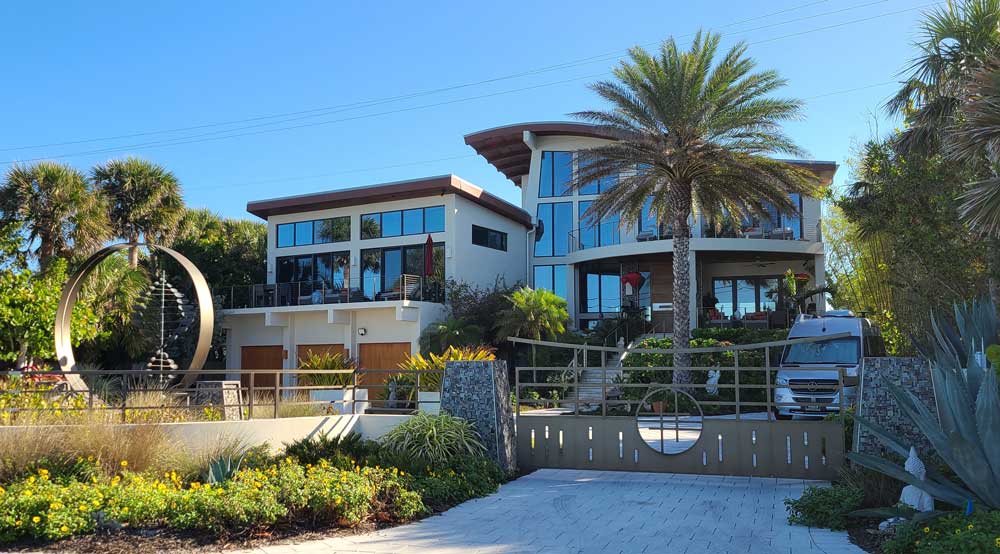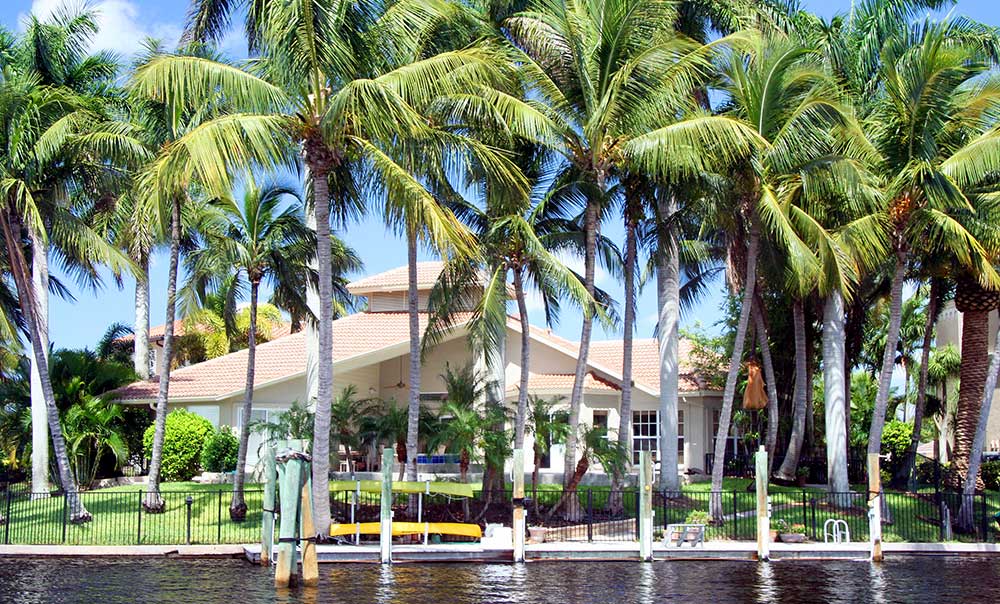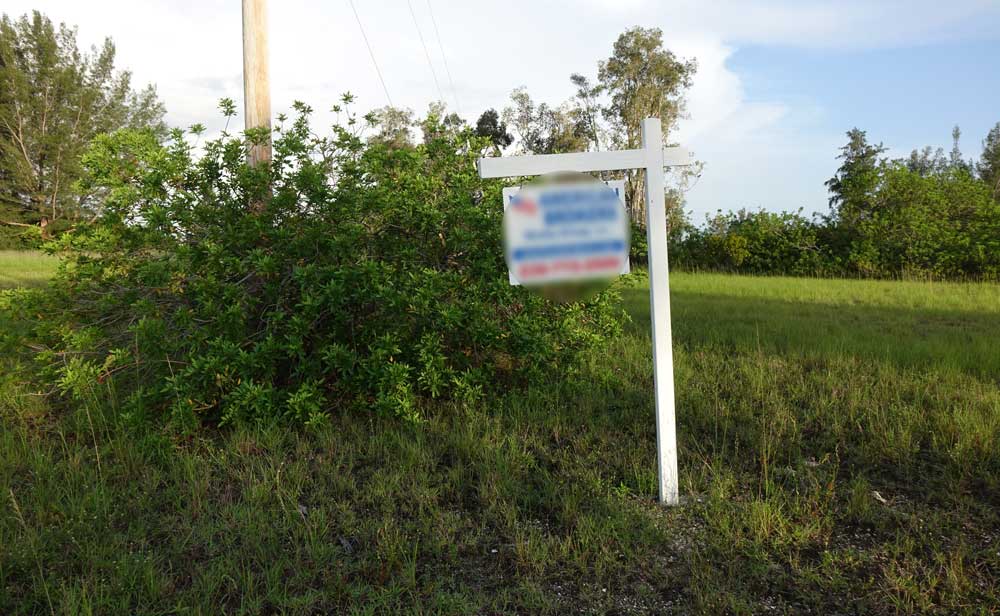Real Estate in Florida: Current Market 2025 – Challenge Opportunity

The real estate market in Florida shows itself to be multifaceted and dynamic in 2025. Regional differences, economic developments, and new legal requirements shape the current situation. While some regions suffer from rising insurance costs and stricter building regulations, others, especially in the luxury segment, are experiencing strong demand, as this comprehensive overview of the market situation shows.
General Market Development: Stabilization after the Boom
- It doesn’t have to be an entire floor in the Porsche Design Tower (left), where you drive your car into the penthouse apartments.
After a decade of rapid price increases, the Florida real estate market is cooling down, without falling into a crisis. The number of properties for sale has grown. In many regions, this means a more balanced balance of power between supply and demand.
Buyers have more choice and can negotiate more strongly. At the same time, prices in sought-after areas remain stable or are rising slightly, indicating a healthy, more sustainable market development. Extreme price jumps, as observed in the years 2020 to 2022, have become rare.
Moreover, in 2025, many regions of Florida are experiencing a pronounced buyer’s market. The increased number of property listings, combined with more selective demand behavior, gives buyers with sufficient equity a strong negotiating position.
Especially those who have funds available at short notice and can act flexibly often find opportunities to acquire properties at significantly better conditions than just a few years ago. For investors, this creates attractive entry opportunities to acquire high-quality properties that offer good potential for appreciation in the medium term.
Regional Differences: Boom Towns and Weakening Markets
Florida’s size and diversity are also reflected in its real estate landscape. Cities like Miami, Orlando and Tampa continue to benefit from strong influx, especially in the upscale price segment. International buyers and wealthy Americans are driving demand for luxury properties, motivated by tax advantages, lifestyle factors, and the warm climate.
In contrast, parts of the Gulf Coast like Fort Myers and rural regions are experiencing a slowdown. Prices are falling slightly in some areas, especially in regions more affected by climate risks or with a less robust economic base. This development illustrates that a general assessment of the real estate market in Florida is not purposeful. Regional market knowledge is becoming increasingly important for buyers and investors.
Challenges and Opportunities in Florida Real Estate
- Villa on the Canal in Cape Coral
Challenges: Insurance Costs and New Building Regulations
One of the biggest burdens for property owners and buyers in 2025 is the massively increased home insurance costs. Especially in coastal regions regularly threatened by hurricanes and floods, premiums are skyrocketing. Some insurers have even completely withdrawn from the market, further limiting options.
Additionally, following the collapse of Champlain Towers South in Surfside in 2021, building regulations have been significantly tightened. Stricter inspection requirements and maintenance standards now apply, especially for older condominiums. Many owners are facing high renovation costs, which is increasing the pressure to sell in certain segments. At the same time, these measures improve the safety and quality of housing in the long term.
Opportunities: Affordable and Sustainable Real Estate in Focus
Despite existing challenges, new perspectives are also opening up. Especially affordable residential areas in the interior, far from immediate climate risks, are becoming increasingly attractive to buyers. Florida regions like Lakeland or Gainesville benefit from their relative safety from natural disasters and offer a good quality of life at comparatively moderate prices.
At the same time, awareness of sustainable construction is increasing. Energy-efficient properties with solar systems, modern insulation, and sustainable materials are in higher demand than ever. Not only ecological but also economic reasons are driving this development: Those who invest in energy-efficient Florida properties today save operating costs in the long term and increase the value stability of their property.
Outlook 2025: Promising despite Uncertainties
- There are still plenty of plots available.
Despite uncertainties due to insurance issues, building regulations, and regional differences, the real estate market in Florida 2025 shows an overall positive basic trend. The stabilization after years of boom is a sign of market maturation. Those who plan carefully today, are well-informed, and consider regional peculiarities can take advantage of attractive opportunities.
Florida remains an interesting market for both private buyers and institutional investors. The long-term growth drivers – population growth, economic dynamism, and tax advantages – remain intact.
Conclusion on Real Estate in Florida
The real estate market in Florida looking towards 2025 is characterized by a complex mix of challenges and opportunities. Rising insurance costs and stricter building regulations demand attention and care. At the same time, new possibilities are emerging due to regional differences, growing interest in sustainable properties, and general market stabilization.
In particular, the current pronounced buyer’s market offers investors with sufficient equity excellent opportunities to find high-quality properties at attractive prices. With strategic planning, realistic risk assessment, and focus on future-proof locations, the market can be successfully navigated.
Sources: Ed DiMarco Realtor, New York Post, Wall Street Journal








